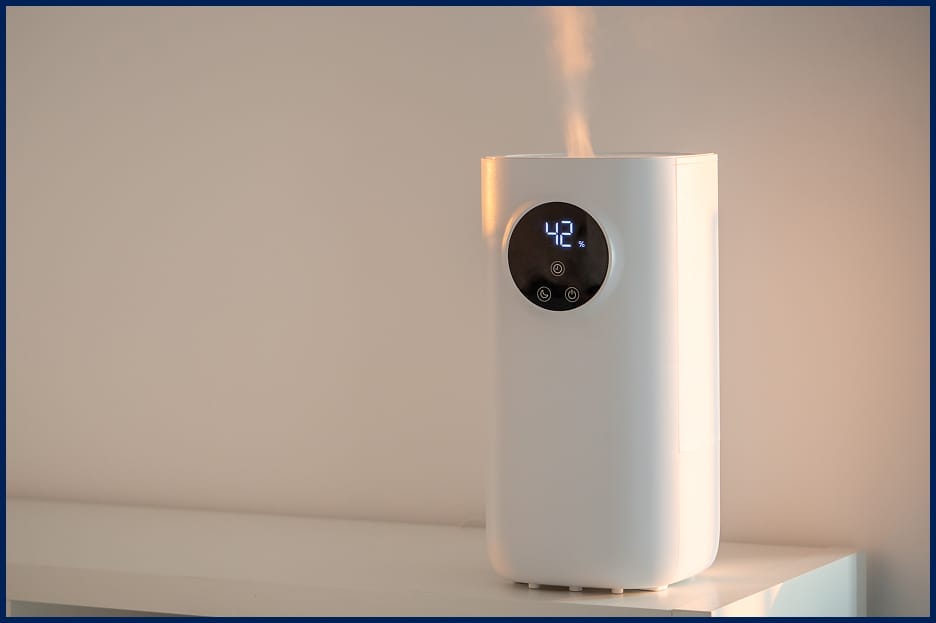Few things disrupt sleep more than a painful, scratchy throat that worsens after dark. From acid reflux to viral infections, multiple factors can trigger nighttime throat discomfort, but understanding these causes empowers you to find effective relief.
This guide explores the most common culprits behind nighttime sore throats and provides practical solutions for better sleep.

Acid Reflux (GERD): A Major Culprit Behind Nighttime Sore Throats
During sleep, your body’s horizontal position disrupts the natural barrier that typically keeps stomach acid in place. Without gravity’s assistance, acidic content can flow backward into your esophagus, creating a burning sensation and irritating the delicate throat tissues. This process, known as acid reflux or Gastroesophageal Reflux Disease (GERD), often intensifies at night due to extended periods of lying down.
Your sleeping position plays a crucial role in managing reflux symptoms. Side sleeping, particularly on the left side, has proven most effective in minimizing acid backflow. This position keeps the junction between the stomach and esophagus above the level of stomach acid. Conversely, sleeping flat on your back typically exacerbates symptoms by allowing easier acid flow into the esophagus.
Several dietary and lifestyle factors can trigger nighttime acid reflux. Consuming large meals close to bedtime puts extra pressure on your lower esophageal sphincter, increasing the likelihood of acid backflow. Foods like spicy dishes, citrus fruits, tomato-based products, and fatty meals can relax this sphincter.
Additionally, beverages such as coffee, alcohol, and carbonated drinks often stimulate acid production. Even seemingly harmless habits like wearing tight clothing around the waist can contribute to reflux episodes.
Prevention requires a multi-faceted approach focusing on both immediate and long-term solutions. Elevating your head six to eight inches using bed risers or extra pillows helps maintain a beneficial angle for acid retention. Creating a three-hour gap between your last meal and bedtime allows for proper digestion. Wearing loose-fitting sleepwear reduces abdominal pressure while maintaining a healthy weight decreases strain on your digestive system.
For persistent symptoms, acid-reducing medications taken as prescribed can provide significant relief. A wedge pillow specifically designed for acid reflux can offer consistent elevation throughout the night, proving more effective than standard pillows that may shift during sleep.

Dry Air and Mouth Breathing: A Common Nighttime Irritant
Modern heating and cooling systems significantly reduce indoor air humidity, especially during sleep hours when systems run continuously. This artificial environment strips moisture from the air and throat tissues, leading to irritation and discomfort. Central heating particularly dries out indoor spaces during winter months, while air conditioning removes humidity throughout summer.
Sleeping position affects breathing patterns and throat comfort. Back sleeping often leads to increased mouth breathing, as gravity pulls the tongue and soft tissues backward. This creates a cycle where mouth breathing further dries the throat, intensifying soreness. Meanwhile, side sleeping typically promotes nasal breathing, helping maintain throat moisture.
Weather changes dramatically impact throat comfort, with winter bringing particularly dry conditions indoors and out. Fall allergies can force mouth breathing, while spring’s increased pollen often triggers nighttime congestion. Summer air conditioning creates artificial dryness similar to winter heating.
Creating an optimal sleeping environment requires strategic moisture management. A quality humidifier placed near the bed can maintain healthy humidity levels. Regular cleaning of heating and cooling vents, choosing appropriate humidity settings, and using nasal strips to promote nasal breathing can significantly reduce nighttime throat discomfort. Keeping a glass of water beside the bed helps rehydrate irritated tissues quickly when needed.

Viral Infections: Understanding Nighttime Throat Pain
Upper respiratory viruses cause most sore throats, with rhinovirus (common cold), influenza, and COVID-19 being the primary culprits. These viruses inflame throat tissues and trigger increased mucus production, creating persistent irritation and pain.
Throat discomfort typically intensifies at night due to several factors. The body’s reduced cortisol production during evening hours allows inflammation to increase. Lying down causes postnasal drip to pool in the throat, while decreased swallowing during sleep leaves irritated tissues exposed to acid and mucus.
Most viral sore throats last 5-7 days, though some may persist for up to two weeks. Cold symptoms peak around day three, while flu symptoms often intensify more quickly. COVID-19 throat pain typically emerges early and may fluctuate throughout the illness.
Treatment focuses on symptom management since antibiotics won’t affect viral infections. Saltwater gargles reduce swelling and clear mucus. Over-the-counter pain relievers address inflammation and discomfort. Maintaining proper hydration, using throat lozenges, and keeping the head elevated during sleep can significantly reduce nighttime symptoms. For severe sore throat or persistent sore throat cases lasting beyond two weeks, medical evaluation helps rule out complications or secondary infections.
Allergies and Post-Nasal Drip: A Nightly Nuisance
Bedroom environments harbor numerous allergens that trigger throat irritation. Dust mites thrive in mattresses, pillows, and bedding, while pet dander accumulates in carpets and upholstery. Mold spores often concentrate in humid bedrooms, particularly in older homes or poorly ventilated spaces.
Post-nasal drip worsens at night when lying down disrupts normal mucus flow. Instead of draining normally, mucus accumulates in the throat, causing irritation and triggering cough reflexes. This horizontal position also slows the body’s natural mucus-clearing mechanisms, leading to prolonged tissue contact with irritating substances.
Environmental conditions play a significant role in allergy symptoms. Indoor air pollution, seasonal pollen counts, and humidity levels affect mucus production and drainage. Poor ventilation traps allergens, while excessive moisture promotes dust mite and mold growth.
Managing nighttime allergies requires systematic intervention. Regular vacuuming with HEPA filters removes allergens from floors and surfaces. Hypoallergenic bedding creates a barrier against dust mites, while air purifiers filter airborne particles. Weekly hot water washing of bedding eliminates accumulated allergens. Maintaining optimal bedroom humidity between 30-50% discourages allergen growth while supporting healthy mucus flow.
Less Common but Serious Causes
While most sore throats resolve independently, certain conditions require medical attention. Understanding these serious causes helps identify when professional care becomes necessary.
Sleep Apnea
Sleep apnea repeatedly interrupts breathing during sleep, forcing mouth breathing and causing throat irritation. The condition often involves snoring, gasping, and chronic throat inflammation. Untreated sleep apnea can lead to serious health complications, including heart problems and cognitive issues.
Tonsillitis
Bacterial or viral infections cause tonsils to become inflamed and swollen. Common symptoms include severe throat pain, difficulty swallowing, fever, and visible white patches on the tonsils. Recurring tonsillitis may require surgical removal of tonsils.
Strep Throat
This bacterial infection causes intense throat pain, fever, and swollen lymph nodes. Strep bacteria can damage heart valves and kidneys if untreated. Early antibiotic treatment prevents complications and reduces contagion risk.
When to Seek Medical Attention
Seek immediate care for:
- Difficulty breathing or swallowing
- Severe pain lasting over a week
- Fever above 101°F (38.3°C)
- Blood in saliva or phlegm
- One-sided throat swelling
- Voice changes lasting over two weeks
- Recurring tonsillitis episodes
- Unexplained weight loss with throat pain

Prevention and Relief Strategies
Managing nighttime sore throat requires a comprehensive approach combining targeted treatment with preventive measures.
SoreThroat911
This innovative roll-on treatment penetrates deep into affected tissues for fast relief. The 21ml bottle features a rollerball applicator for precise delivery to sore throat areas and swollen glands.
Apply at the first sign of discomfort for immediate soothing effects. With hundreds of applications per bottle, SoreThroat911 provides lasting value while targeting multiple symptoms, including throat pain, sinus congestion, and earache.
Lifestyle Adjustments
Stay hydrated throughout the day. Avoid irritants like alcohol and caffeine near bedtime. Maintain consistent sleep schedules and elevate your bed’s head by 6-8 inches to prevent reflux.
Environmental Modifications
Keep bedroom humidity between 30-50%. Use clean air filters. Remove dust-collecting items. Ensure proper ventilation during heating/cooling seasons. Clean bedding weekly.
Natural Remedies
Use warm salt water gargles and honey-lemon tea. Try steam inhalation with eucalyptus oil. Consider zinc lozenges at first symptoms. Combine these natural remedies with regular SoreThroat911 application before bed when symptoms intensify.
Finding Relief: Your Path to Better Sleep
Nighttime sore throats can significantly impact sleep quality and overall well-being, but effective solutions exist. With targeted treatments like SoreThroat911, alongside proper environmental controls and lifestyle adjustments, most people can find substantial relief from their symptoms.
Whether caused by allergies, viruses, or environmental factors, understanding the root cause helps determine the most effective treatment approach. For persistent or severe symptoms, always consult a healthcare provider to rule out serious conditions and receive appropriate care.


